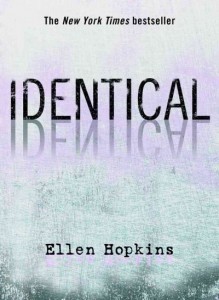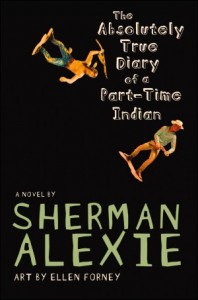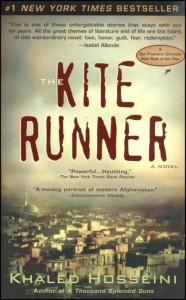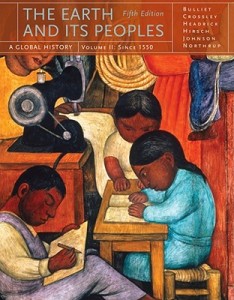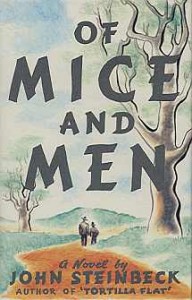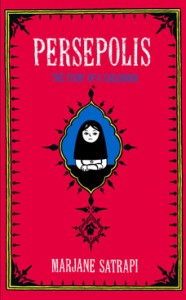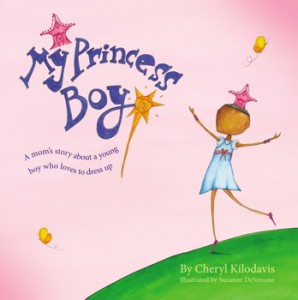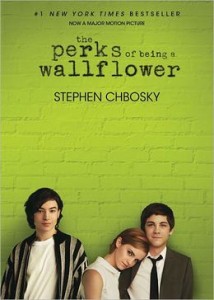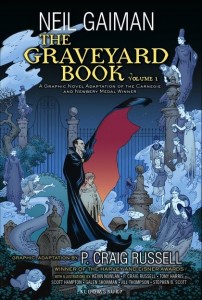This year, CBLDF and its partners in anti-censorship advocacy have seen a dramatic increase in book challenges compared to last year. Fortunately, in most of those cases we and local free speech fighters have prevailed! Here are some free speech victories to savor this Banned Books Week.
1. Appoquinimink School District, Delaware
After the parent of a high school student complained that his son felt uncomfortable reading Ellen Hopkins’ Identical, which deals with sexual abuse, in a voluntary extracurricular high school book club with mostly female members, a district administrator proposed two ill-considered new policies. One would have “red-flagged” books according to arbitrary standards, requiring parents to give express permission for their children to read any assigned book that contains “areas of concern.” The other would have allowed parents to bar their children from checking out all such books from school libraries as well.
CBLDF and other members of the National Coalition Against Censorship’s Kids’ Right to Read Project sent the district a letter of concern, and several parents also voiced their opposition to the proposals. The administration reversed course in January after realizing that there were already “policies and procedures in place that adequately address the needs of stakeholders.”
2. Brunswick County Public School System, North Carolina
About a week after Brunswick County resident Frankie Wood challenged Sherman Alexie’s The Absolutely True Diary of a Part-Time Indian for the second time in as many years, she was informed that the challenge would not be considered due to district policy limiting how frequently the same book can be challenged. Wood spent several months last year fighting to have the book removed, but her request was denied by a review committee and (now former) superintendent Edward Pruden. Unfortunately, Wood appealed and the school board restricted access to the book by requiring students to have parental permission to check it out.
3. Buncombe County Schools, North Carolina
One parent’s effort to ban The Kite Runner by Khaled Hosseini from the 10th grade Honors English curriculum ultimately failed this summer, but not before she managed to keep it out of the classroom for several months through a drawn-out challenge and appeals process. Former school board member Lisa Baldwin filed the challenge in April, objecting to depictions of “homosexuality and sexually explicit scenes.” A school-level review committee decided the content was appropriate for 10th grade students, but Baldwin appealed that decision to a district-wide committee, adding another objection that the book “inaccurately assign[s] Judeo-Christian characteristics to a Muslim god.” After that review committee also unanimously recommended retaining The Kite Runner, Baldwin appealed to the full school board. Another unanimous decision there in July meant that Baldwin was finally out of appeals and the book will continue to be used in Honors English.
Due to a provision that used to be found in the challenge policy, however, The Kite Runner was kept out of the classroom while Baldwin’s challenge and appeals were pending. All students taking the class last spring instead read the alternate assignment, All Quiet on the Western Front. The school board wisely realized that the curriculum should not be held hostage to individual whims, and changed the policy in September so that challenged books will now remain in classrooms and/or school libraries until the challenge is resolved one way or the other.
4. Charlotte County, Florida
Two world history textbooks used in AP classes were challenged by a citizens’ group called ACT! for America, which describes itself as “non-profit, non-partisan, grassroots organization devoted to promoting national security and defeating terrorism.” Although the books titled The Earth and Its Peoples: A Global History and World History: Connections to Today had been in the curriculum for eight years, ACT! said that they promote an “Islamist agenda” and contain “specific inaccuracies and misrepresentations.” A review committee voted 8-2 to retain the books in the curriculum but ACT! appealed that decision to the school board, at which time CBLDF and other NCAC members sent a letter urging the board not to “promote one group’s religiously or politically informed viewpoints.” The board voted unanimously to retain the books.
5. Coeur d’Alene Public Schools, Idaho
Several members of a school district curriculum review committee lost sight of their mission to assess materials for reading level alone, and instead attempted to change the way that John Steinbeck’s classic novella Of Mice and Men is taught in 9th grade classrooms. The book is currently used for whole-group instruction, but the committee recommended restricting it to small groups. One parent who sat on the committee dismissed the book as “neither a quality story nor a page turner,” while another member said it should be read only in small groups “to explain away the dark part of it.” School board member Dave Eubanks, who was also a non-voting member of the review committee, added that Steinbeck’s classic has “too darn much cussing.”
When the committee’s recommendation proceeded to the school board for a vote, CBLDF joined with other NCAC members to send a letter urging the board not to restrict the book, described as “one of the truest representations of the hardships wrought by the Great Depression, a pivotal period in the United States.” The board voted 4-1 not to change the curriculum, with one member pointing out that 9th graders have read Of Mice and Men since 2002 without a single complaint from parents.
6. Crafton Hills College, California
In June, a 20-year-old student and her parents publicly raised objections to four graphic novels covered in an English class that she had completed in May. Tara Shultz, who is working towards an Associate Degree in English, knew when she began the course in January that it focused on graphic novels, but said she “expected Batman and Robin, not pornography.” Shultz contacted her parents, and the family challenged the inclusion of four of the ten books taught by Associate Professor Ryan Bartlett: Persepolis by Marjane Satrapi, Fun Home by Alison Bechdel, Y: The Last Man Vol. 1 by Brian K. Vaughan and Pia Guerra, and The Sandman Vol. 2: The Doll’s House by Neil Gaiman and various artists.
Crafton Hills declined to modify its curriculum based on the family’s complaint, but hinted at requiring a disclaimer on the syllabus in future “so students have a better understanding of the course content.” After CBLDF and other NCAC members sent a letter urging against that action, San Bernardino Community College District ultimately decided not to implement such a requirement for Crafton Hills and its other campus, San Bernardino Valley College. Chancellor Bruce Baron said that he “had never dealt with a similar student complaint during his 40 years in education.”
7. Hood County, Texas
Over 50 residents of Hood County, Texas filed formal challenges against two LGBTQ-themed children’s picture books found in the local public library. Library director Courtney Kincaid and an advisory board refused to move My Princess Boy and This Day in June out of the children’s section, prompting would-be censors to take their complaints to the county commission. In advance of that meeting, CBLDF and other NCAC members sent the commission a letter in support of the books and the library, pointing out that a nearly identical scenario had already been tested in a Texas court which found “[t]here simply is no interest, let alone a compelling one, in restricting access to non-obscene, fully-protected library books solely on the basis of the majority’s disagreement with their perceived message.”
At a packed public meeting where attendees were about evenly split between those who supported the books and those who wanted them moved or entirely banned, commissioners accepted the legal argument which was also backed up by Hood County Attorney Lori Kaspar.
8. Indian River School District, Delaware
In September 2014, school board member Shaun Fink had raised concerns about the district’s new sex ed curriculum, saying that providing students information on sexuality, birth control, and STD prevention clashed with his religious beliefs. In particular, Fink said he had “issues [with] teaching it’s okay to be gay.” CBLDF and other NCAC members sent the district a letter urging that curricular decisions be made on “scientifically- and educationally-sound grounds, rather than in response to complaints reflecting particular moral or religious beliefs.” After a three-month review of the curriculum, a school board subcommittee which included Fink ultimately recommended that it be implemented without censorship. The full school board approved the curriculum in January 2015.
9. Rio Rancho Public School District, New Mexico
Rejecting one New Mexico parent’s complaint that the highly-regarded graphic novel Palomar by Gilbert Hernandez was “child porn,” a district review committee voted to keep the book in a high school library. CBLDF led a coalition that included NCAC in defending the book after it was attacked in a lurid and biased news report from local TV affiliate KOAT, which continued its attack after the decision to keep the book was announced. The win was tempered by news that the parent was going to appeal the review committee’s decision to the school board, but school board meeting minutes reveal no further discussion of the challenge.
Although Palomar will technically be back in the RRHS library, the victory is qualified: A parental signature is now required for anyone under 18 who would like to check out the book. The requirement sets up an access barrier for the vast majority of students based on one parent’s complaint. The special treatment for one book — apparently an administrative decision rather than a recommendation of the review committee — also violates the spirit of Rio Rancho Public Schools’ Library Bill of Rights and its challenge policy which says book challenges are to be treated “objectively, unemotionally, and as a routine matter.” Further, a FOIA request revealed that the district initially ignored its challenge policy. Regardless, may free speech advocates treat the decision as a victory because the book can still be accessed.
10. Wallingford Public School District, Connecticut
Despite a recommendation otherwise from a review committee, Wallingford Public Schools Superintendent Dr. Salvatore Menzo removed Stephen Chbosky’s The Perks of Being a Wallflower from the freshman English curriculum, claiming the reading level was too low for students. CBLDF joined NCAC to defend the book, which was challenged by a member of the district’s school board. Another parent filed a counter-challenge, demanding that the book be restored. In late April, the book was reinstated by the second review committee.
11. – 13. Undisclosed Locations
Throughout 2015, CBLDF has been confidentially involved in protecting several graphic novels from challenges. In several cases, we were able to keep the challenges from happening — the best sort of victory!
CBLDF has provided tools and resources to librarians who needed assistance defending Neil Gaiman and P. Craig Russell’s graphic novel edition of The Graveyard Book (challenged for violent imagery), Jillian and Mariko Tamaki’s Caldecott-winning This One Summer (challenged for age appropriateness), and Raina Telgemeier’s bestseller Drama (challenged for sexual content). With our assistance, these teachers and librarians were able to keep these amazing graphic novels on shelves!
—
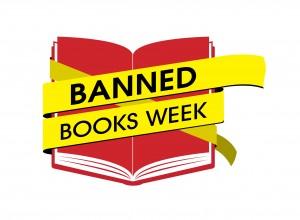 If you are planning a Banned Books Week event or display, it’s not too late to let us know about it! We’ll update this calendar of events throughout the week. Send the info about your event to betsy.gomez@cbldf.org!
If you are planning a Banned Books Week event or display, it’s not too late to let us know about it! We’ll update this calendar of events throughout the week. Send the info about your event to betsy.gomez@cbldf.org!
As you’re planning your events or developing your library and classroom curricula, be sure to check out these other valuable CBLDF resources:
- CBLDF Banned Books Week Handbook
- CBLDF Posters and Shelf Talkers
- CBLDF Comics Connector
- CBLDF Banned Books Week Gear Bundle
- 12 Challenged & Banned YA Graphic Novels for Banned Books Week 2015
- 28 Challenged and Banned Comics to Read During Banned Books Week 2015!
- Raising A Reader: How Comics & Graphic Novels Can Help Your Kids Love to Read!
- Using Graphic Novels in Education
- Adding Graphic Novels to Your Library or Classroom Collection
- CBLDF Discussion Guides
- CBLDF Banned Comics Case Studies
- Comic Book Club Handbook
- CBLDF Presents: Manga
- Working With Libraries: A Handbook For Comics Creators
Banned Books Week is sponsored by the American Booksellers Association, American Booksellers for Free Expression, American Library Association, American Society of Journalists and Authors, Association of American Publishers, Comic Book Legal Defense Fund, Freedom to Read Foundation, National Association of College Stores, National Coalition Against Censorship, National Council of Teachers of English, PEN American Center, People for the American Way Foundation, and Project Censored.
Help support CBLDF’s important First Amendment work in 2015 by visiting the Rewards Zone, making a donation, or becoming a member of CBLDF!
